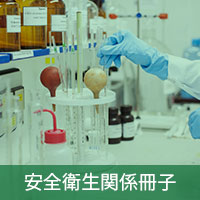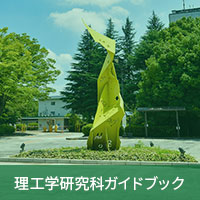Educational and Research Objectives
One of the main educational and research objectives in Physics and Functional Material Science is to cultivate specialists in the fields of advanced materials science and engineering. They are expected to play an active role in the international community with the background of fundamental studies and a wide range of perspectives through advanced specialized education in both the fields of physics, which clarifies the basis of various phenomena in the natural world, and functional materials engineering, which realizes materials and devices with novel functions by grasping the characteristics of materials.
Physics Program
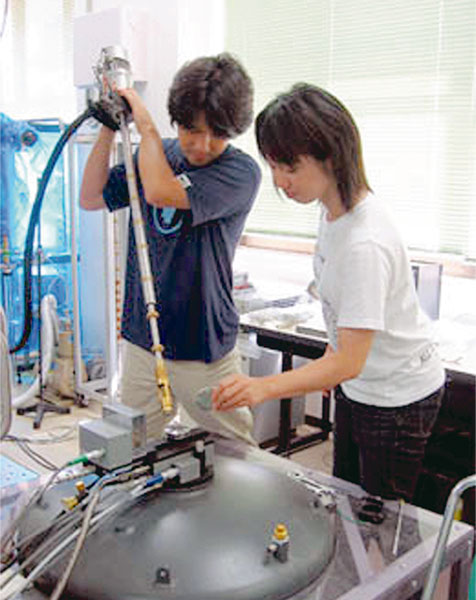
In the Physics Course, we are fostering – through the study of physics, the basis of natural science – advanced engineers and researchers with the ability to think logically and flexibly and to solve problems that is required in the fields of research and science technology. In the Physics Course, we are conducting the following studies: (1) studies on clarifying the structure and reaction mechanisms of fundamental constituent particles in various layers ranging from the ultramicroscopic scale to the macroscopic scale of the universe and on the mechanism of interaction between fundamental particles; (2) experimental studies aimed to to understand high energy phenomena in the universe; (3) studies on elucidating the structure and dynamics of condensates, creating new substances, and measuring their physical properties in multiple extreme conditions by taking advantage of the state-of-the-art quantum science techniques (neutron scattering, μSR, synchrotron radiation, and various types of numerical/analytical calculations). Through these efforts, we are developing internationally accepted human resources with the ability to solve problems and to handle information, not only through a fundamental understanding of the basics of of various material structures and quantum science but also through calculations, observations, and experiments involved in these studies.
Basic Chemistry Program
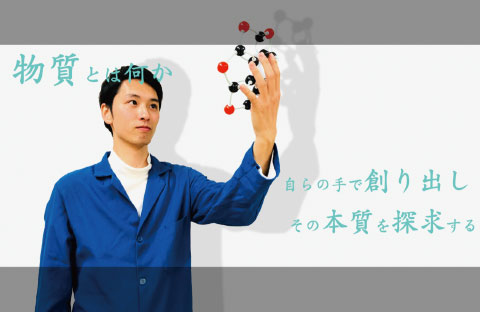
In the Basic Chemistry Course, we are providing education and research from a physical viewpoint on the profound and straightforward theme of "What is a substance?" More specifically, we are studying the reactions and properties of various substances, whether inorganic or organic, examining the structure of constituent atoms and molecules, synthesizing novel substances, aiming to develop additional functionality. With as many as 60 million different kinds of substances are known and used practically in modern society, studying the properties, structure, and functions of substances is very important. In the field of education, we are aiming at the acquisition of the knowledge and skills needed for chemical researchers, educators, engineers, or those who major in the related science fields, the development of the ability to identify and solve problems, and the development of members of society who can understand the role of "chemistry" in natural science and recognize its importance from a broad perspective. To achieve this objective effectively, we offer classes in the fields of expertise, special classes by outside lecturers, and round-table review of technical papers and research debriefing sessions in laboratories. Additionally, each student will work on a single research theme to prepare a master’s thesis and learn the frontline of research.
Applied Chemistry Program
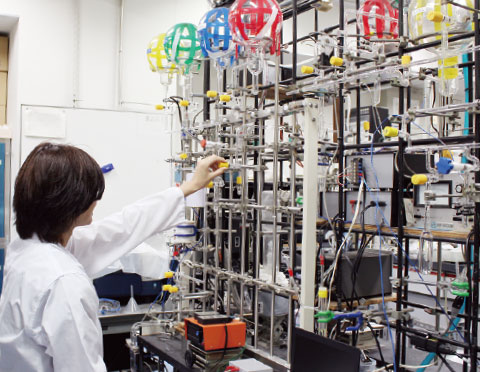
In the Applied Chemistry Course, we are providing education and research activities on the synthesis, data analysis, and chemical analysis of materials in harmony with the global environment. In the field of research, we are promoting the followings in three specialized fields (the field of inorganic materials chemistry/catalytic chemistry, the field of organic materials chemistry/process engineering, and the field of analytical chemistry/physical chemistry): 1) the development of inorganic materials such as catalysts and ceramics; 2) the development of organic materials such as functional dyes, liquid crystals, and organic polymers; 3) the development of new analytical methods and analytical techniques taking advantage of chemical separations; 4) the development and application of new interface-dependent non-linear laser spectroscopy. In the field of education, we set the goal of developing human resources who can independently conduct research and development in each specialized field using advanced technology with an international perspective and a sense of social responsibility. To achieve the goal, we are providing specialized education incorporating cutting-edge research in each field. At the same time, we are providing adequate education so that each student can gradually improve his/her ability to communicate and to write theses through oral presentations and discussions of their research results.




